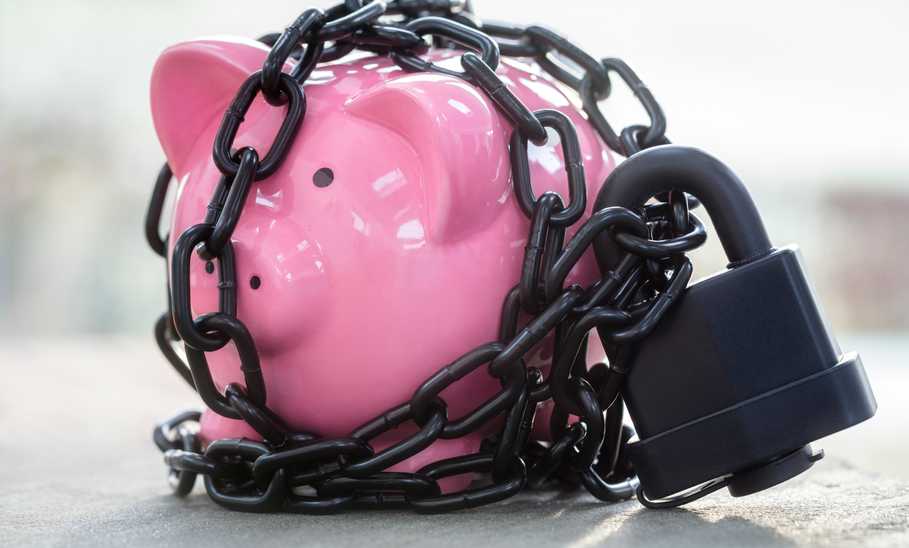How to Close a Bank Account

Our evaluations and opinions are not influenced by our advertising relationships, but we may earn a commission from our partners’ links. This content is created by TIME Stamped, under TIME’s direction and produced in accordance with TIME’s editorial guidelines and overseen by TIME’s editorial staff. Learn more about it.
You may want to change banks for any number of reasons. Whether you want lower fees, more favorable interest rates, or better customer service, opening a new account and switching your direct deposit and automatic payments is fairly straightforward. But what about closing your old bank account?
Closing a bank account only takes a few minutes if you’ve taken the right steps to prepare. Read on to learn how to close a bank account in this beginner’s guide.
There are many reasons a customer may want to close a bank account. Often people switch to another bank for the following reasons. .
The biggest reason to close a bank account is to avoid fees. Some banks charge customers regularly through minimum balance requirements or monthly maintenance fees. ATM fees, electronic transfer fees, and other service charges could also motivate you to shop elsewhere. You may be able to find an account that charges less or nothing for you to fulfill your banking needs.
While it’s not a huge deal for lower balances, accounts with thousands of dollars or more can earn significant monthly interest. Due to the power of compounding, switching to an account like a high-yield savings account can supercharge your bank account interest over the long term.
If you dread visiting your bank or calling its customer service number, you may be looking for a bank that’s friendlier to deal with. Good customer service can turn banking into a much more pleasant experience.
While most people can handle their banking online, some still like to walk into a branch and handle their needs with in-person customer service. If you’ve moved or changed jobs, opting for a different bank with branches closer to your new location is a reasonable option.
Unless you are paid in cash at work, there’s little reason for many people to need a branch, so switching to an online-only bank could also be convenient.
If you’re ready to move to a new bank, follow these steps to close your old account.
Opening a new account is necessary before closing the old one. Even if you had a bad experience with your old bank, maintaining a bank account is essential for common needs such as depositing checks, paying bills, and getting paid from your employer.
Next, you’ll need to move recurring payments to your new bank account. Contact your employer’s human resources department to move your direct deposit and communicate your new account details to each company that automatically bills you from your bank account. You’ll need your new bank’s routing and account numbers to update your payment info.
Tip: Consider keeping your old account open for a few months with enough cash to cover common bills. New bank information can take time to process, meaning the next bill might still be taken from your old account.
Once you’re sure all recurring deposits and payments are moved to the new account, it’s time to bring your old account balance to zero. You can make an online transfer, use a payment app like Venmo or PayPal, write yourself a check, or withdraw your balance in cash. If you plan to close the account in person at a branch, you can withdraw your balance at the same time.
Now that you have a zero balance, it’s time to shut down your old account officially. Banks don’t usually allow you to close a bank account online, so you’ll probably have to call customer service or visit a branch. By the time your conversation is over, your account should be closed.
It's a good habit to review your bank and credit card statements monthly for accuracy. Be sure to read through the statement for your closed account one last time. Your final statement should show your final month's charges and withdrawal to bring the balance to zero. It should state that the account is closed. Keep your final statement for your records.
Before closing your account, consider whether it may still be useful. When you switch banks, there’s no reason to rush and close an old account with no recurring fees. A recurring charge you forgot to move could lead to fees and hassles that make keeping your old account a bit longer a good idea in some situations.
Closing and opening a new account can be time-consuming and may impact your credit, so don’t close an old bank account unless you’re certain you no longer need it. Eventually, however, closing unused accounts is a good idea to avoid fraud and simplify your finances.
Now that you know how to close a bank account, you can move forward by transitioning to a new bank and closing your old account. With good planning and a little work to move recurring transactions, switching accounts is easy. When you no longer need an account with a zero balance, shutting it down for good should only take a few minutes.
Most banks won’t completely close an account until the balance is zero.. If you’ve closed an account and it has funds, contact the bank and ask for a check.
If an account has no balance, it only takes a few minutes to close it by phone or in a bank branch. If there is cash in the account, you’ll need to withdraw your remaining balance to complete the process. .
Online banks generally require their customers to communicate verbally their desire to close an account with an employee at the bank. It may, however, be possible to close an account through online customer self-service tools or chat support when offered.
Closing a joint bank account is the same as closing an individual account. Anyone listed as an account owner has full access and control over the account, and any account holder can request to close the account.
Closing a bank account does not directly impact your credit score or report, provided you do it correctly. If you abandon an account without notifying the bank, your balance could fall under zero.
Every bank has its own policies regarding retaining records for old accounts. Some banks may keep records for years, while others may have shorter retention periods. If you have questions about a specific bank, it’s best to contact its customer service to find out how to get old statements and other account information.
The information presented here is created by TIME Stamped and overseen by TIME editorial staff. To learn more, see our About Us page.



